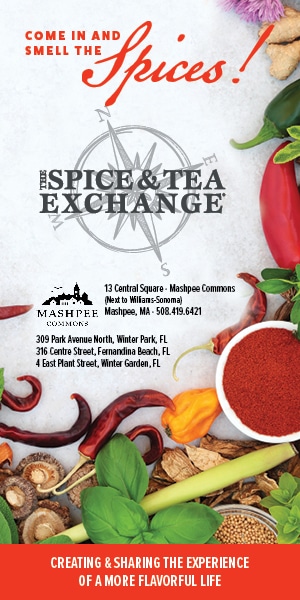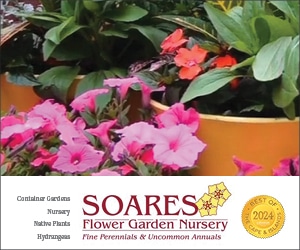
Rare, wild, and ephemeral — Orchids
Cape Cod Life / May 2015 / Nature, People & Businesses
Writer: Mary Grauerholz / Photographer: Rich Eldred
Rare, wild, and ephemeral — Orchids

Cape Cod Life / May 2015 / Nature, People & Businesses
Writer: Mary Grauerholz / Photographer: Rich Eldred
An Orleans resident shares his passion for wild local orchids

Photo by: Rich Eldred
Cloaked in an aura of mystery and sculptural beauty, orchids tug at more hearts than perhaps any other flower. And how could they not? Behind their lush looks is a shocking story; no other flower has inspired such vivid stories of obsession and drama. Orchid hunters have been eaten by tigers, vanished in jungles, and even held hostage.
While Rich Eldred understands why orchid growers are drawn to these exotic tales, the South Orleans resident says he loves orchids more for their physical properties: they are elegant, evolved, and delicate.
“My fascination with orchids?” Eldred, 61, reflects. “They are the most highly evolved group of plants. The seeds are the smallest seeds in the plant kingdom, like dust.” Offering this description, Eldred claps his hands lightly and runs his fingers through the air like rain. “They produce tons of seeds,” he adds, “but don’t grow plants that often.” Even the most common local wild orchid—the Pink Lady Slipper—requires a full 15 years from germination to flowering plant.
A full-time reporter for The Cape Codder newspaper, Eldred is also a local orchid expert who has cultivated brilliant detective skills over the years to locate Cape Cod orchids in the wild, which total just 26 or 27 types. By comparison, there are 210 orchid species in the United States and Canada and more than 25,000 growing around the world; almost half of that total is found in the tropics.
Educated as a botanist and an ecologist, Eldred gave a talk titled “Orchids of Cape Cod” at the Cape Cod Museum of Natural History in March; the presentation was one of several lectures offered in the Brewster museum’s ongoing “Gardening for Life” series. Eldred also leads regular botany walks for both the Harwich Conservation Trust and the Botanical Club of Cape Cod and the Islands.
The wild orchid’s elusive nature is part of its allure. Eldred says he has fallen under the same spell that has transfixed millions around the world. “Orchids seem to come and go,” he says. Cape and Islands orchids, which measure six inches in height to two or three feet, require very specific growing conditions. That fact, combined with their exotic looks, make orchids special even in the eyes of locals who would rather stay inside on a Sunday afternoon than traipse through woods or meadowlands looking for orchids.
While local wildflower experts agree that the number of wild orchids found on Cape Cod is likely declining—some falling to extinction—explorers have made some discoveries in recent years. Eldred says the Small Purple Fringed orchid, for example, was spotted once, locally, at the Sandwich Fish Hatchery in the mid-1980s. Eldred was not that lucky individual, but he has been lucky in coming across other rare orchids and has a history of his own discoveries stamped in his memory—and his notebook.
Eldred once sighted about two-dozen Tessellated Rattlesnake Plantain orchids, an evergreen, near his house. “I didn’t see a one last year,” he says. He also discovered two stems of Little Ladies Tresses—at one time on the state “watch” list—growing in an unused driveway next to a garage in Orleans.
Alternately, the Leafy White orchid, with its graceful white blooms that resemble a nun’s wimple, has eluded Eldred; in fact, the flower has reportedly only been sighted once on the Cape, in a cluster of 17 plants in an old shell mound in Sandwich. “There might be none left anymore,” Eldred says.

Photos by: Rich Eldred
Local wild orchids have an elaborate pollination process and very specific habitats. Many thrive in alkaline soil, contrary to the Cape’s acidic soil. Depending on the variety, the wild orchids on Cape Cod grow in woodland areas, bogs, dunes and hollows, dry or infrequently mown areas such as cemeteries, and sunny, wet spots. Now and then, Eldred spies an orchid growing in a home garden. “I know where to find them,” he says. “I know when they bloom.”
The Pink Lady Slipper, the Cape’s most common wild orchid, is a woodland variety that thrives in open places and in undernourished soil. This beauty has just two leaves, centered with a stalk topped with a single puffy pouch that is formed from a single petal. The flower blooms at the end of May.
Other than the Pink Lady Slipper, Eldred says seeing a wild orchid in this area is an event. There are several varieties known to have grown in this area at one time that are, he says, near impossible to see.
Eldred says his personal Holy Grail is the extremely rare Dragon’s Mouth, an orchid that resembles a crocus and has been found in quaking bogs; the flower is currently on the state’s “threatened” list. The bloom’s fragile beauty has proved its downfall: In the late 1800s, young boys in the Northeast dug up the orchids to sell them in cities. One was found in Falmouth in 1911, yet no more local sightings were reported until one in Provincetown in the 1980s, followed by another a few years ago on Martha’s Vineyard. “They are almost extinct on the Cape,” Eldred says. “You might see them in Labrador or Newfoundland.”
Rare wild orchids inspire controversy and intrigue. The pale-green Bayard’s Adder’s-mouth orchid—another that Eldred hopes to see one day—was spotted once on an old wooded road near the Barnstable-Sandwich border. Adding to its elusive nature is the fact that this orchid—and many others—flowers for just a few weeks each year. “People debate whether it’s a true species—or just another adder’s-mouth,” Eldred says with a smile.
Following the trail of the wild Cape Cod orchid may be the most enticing journey of Eldred’s life—and his hunt is far from finished. Eldred has seen eight of the existing 26 or 27 varieties of local orchids and pursues his next great find with passion. Every walk he takes offers another opportunity.
There is something ineffable about orchids that makes them so coveted. “People get very passionate about orchids,” writer Susan Orlean says. “They just seem to get hooked.” Orlean’s gripping 1998 novel, The Orchid Thief, focuses on one man’s obsession with orchids.
One may describe Eldred in a similar way. “Orchids will be there,” he says, “then they’re not. They are disappearing from development and changes in the landscape. They are ephemeral.”
Mary Grauerholz is a freelance writer from Falmouth.

Photo by: Rich Eldred
In search of orchids
With a knowledgeable guide, a sense of curiosity, and an appreciation for the natural world, you too can become an orchid detective. According to Falmouth resident, Mario DiGregorio, there is one important rule to follow in this endeavor: Always respect nature, and never pick an orchid.
DiGregorio should know. He is a trained naturalist with an emphasis on botany, as well as the vice president of the Botanical Club of Cape Cod and the Islands; he also co-authored Cape Cod Wildflowers: A Vanishing Heritage, first published by Mountain Press Publishing Company in 1989, with Jeff Wallner. Eldred says this book was his first inspiration to set off in search of local wildflowers, including orchids. “I wanted to see every one in the book,” Eldred says.
According to DiGregorio, all of the wild orchids on the Cape and I—slands are fragile—and some are endangered and even threatened by extinction—so extreme care must be taken when viewing them in nature. “Wild orchids,” he adds, “can’t live as houseplants, anyway.”
Books can be an excellent introduction. DiGregorio’s softcover book, Cape Cod Wildflowers: A Vanishing Heritage, focuses on a number of wild orchids. Though currently out of print, the book is available by request at local public libraries. DiGregorio also recommends Wild Orchids of the Northeastern United States: A Field Guide, by Paul Martin Brown, and Newcomb’s Wildflower Guide, by Lawrence Newcomb.
Striking out on your own may prove frustrating and even fruitless. The best option is to go on a nature walk with a local conservation group or the Botanical Club of Cape Cod and the Islands (bccci.wordpress.com), which welcomes new members. The Falmouth-based Cape and Islands Orchid Society also holds events and meetings throughout the year, but the organization’s focus is on cultivated orchids.
If you are lucky enough to see a rare orchid in the wild, contact the Massachusetts Natural Heritage & Endangered Species Program. They will want to know about it! Also, be sure to email a photo of the beautiful flower to Cape Cod LIFE at mgill@capecodlife.com.



